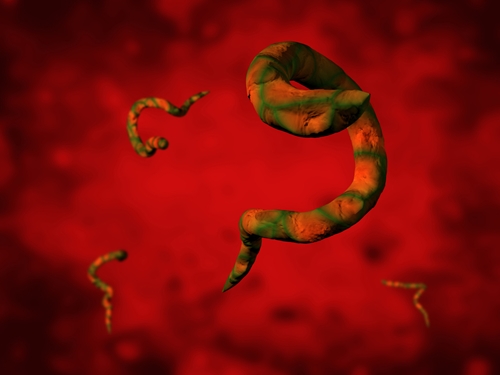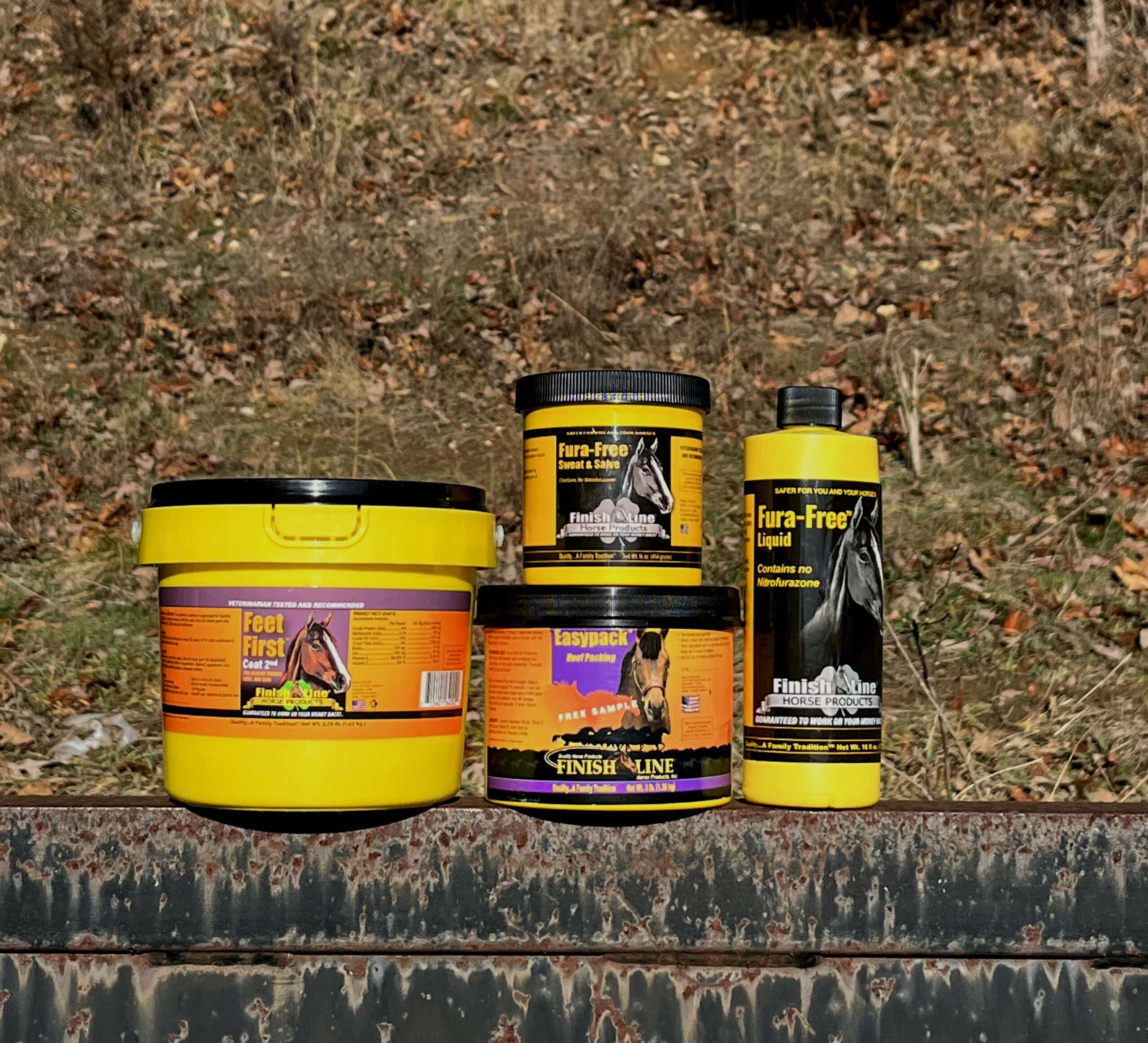Your horse is an ecosystem unto itself, harboring thousands of microorganisms. Many of these play a role in supporting horsehealth, but harmful parasites may also be present within your horse These organisms use horses as hosts without providing anything beneficial to the animal in return. In fact, parasites often compromise the animal’s health, taking away nutrients and travel through the horse’s systems. Wild equines can develop immunity to most of these freeloaders, but domestic ones are particularly susceptible. Below are some of the most common parasites horse owners should be aware of:
“Large strongyles are one of the most deadly parasites.”
Large strongyles
Strongyles are present in grazing pastures and affect horses of all ages. Large strongyles, also known as redworms or bloodworm, are one of the most deadly parasites. Symptoms, which include weight loss, diarrhea, growth issues, colic, anemia, blood clots, internal scarring, aneurysm and ultimately death, progress faster as the horse collects more parasites.
Infected horses excrete large strongyle eggs in their manure. Once hatched, the larvae crawl up blades of grass and are ingested again. Stongyle larvae can live in pastures for up to several months, assuming the weather is cold and dry.
Roundworms
Also called ascarids, roundworms are more commonly found in foals. In fact, most horses develop an immunity to these parasites by two years of age. Roundworms are ingested via water or feed contaminated with parasite eggs. They hatch in the small intestine, then travel through the blood vessels to reach the lungs, liver and heart. Roundworms deprive foals of nutrients essential for healthy growth, leaving them thin, weak and potbellied. Roundworms can also cause diarrhea, colic and chronic respiratory issues like coughing and nasal discharge.
Small Strongyles
Although large strongyles have long been considered the most deadly of the two, small strongyles have grown increasingly resistant to common deworming medications. Like their large counterparts, the small ones start as manure-dwelling eggs and crawl into grass after hatching, where they are ingested. They live in the walls of the large intestine, where they stay and thrive for years at a time. Small stongyles cause irritation, recurrent colic, diarrhea, weight loss, poor coat and potentially death.
“Tapeworms affect about half of North American horses.”
Tapeworms
These parasites are common, affecting about half of North American horses according to TheHorse.com. Tapeworms tend to collect in the area connecting the small and large intestine. They’re segmented, and pieces of the tail end can fall off while the main body is still attached to the horse’s intestines. These segments, which bear eggs, are eventually passed in the animal’s manure. Surprisingly, most horses handle tapeworms well. However, they can cause colic, peritonitis, ulcers, perforations and intussusceptions. Unfortunately, tapeworms are seemingly impervious to most deworming drugs.
Threadworms
Stongyloides westeri, commonly referred to as threadworms, are usually the first parasites to infect newborn horses, affecting foals as young as four days. They mature quickly, and foals a few weeks old might already start passing threadworm eggs in their excrement. Threadworms are generally passed through the mother’s milk, but they can pass through the foal’s skin if the young animal lies down in an infected area. Symptoms are mild compared to other parasites. Diarrhea is usually the only issue, and foals develop immunity by the time they are weaned.
If you suspect your horse is infected by parasites, listed above or otherwise, contact your veterinarian immediately for treatment. In the meantime, provide horse healthcare products to support areas that might have been damaged from the infestation. For instance, Finish Line’s Total Control Plus promotes the health of seven different systems, while the multivitamin Ultra Fire can restore nutrients lost to parasites.









